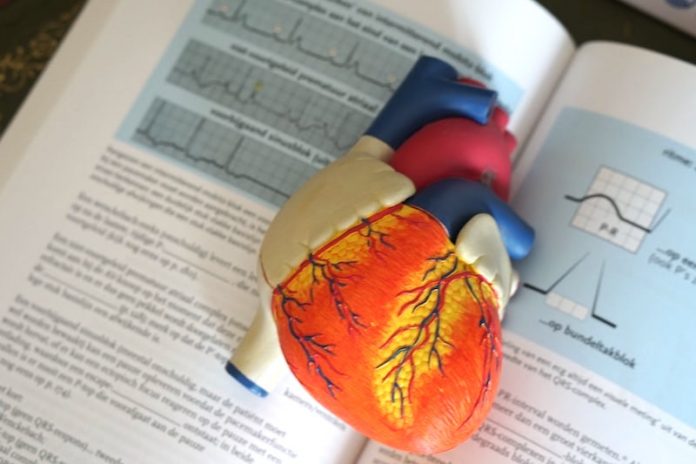
Scientists from the University of Gothenburg found that people with diabetes display an increased risk of disease in left-sided heart valves compared to controls without diabetes.
They also found that valvular heart disease can be prevented by lowering blood pressure and reducing other risk factors even more than current treatment targets.
The research is published in Circulation and was conducted by Aidin Rawshani et al.
Four heart valves serve to make the blood go in the right direction. Since the pressure is highest on the left side of the heart, valve disease most often affects these two valves.
This may have two effects: The valves lose their suppleness and may no longer close or open sufficiently, and regurgitation (leakage) occurs, impairing the heart’s pumping capacity.
Valve (valvular) disease can cause many problems, such as labored breathing, fatigue, dizziness, and at worst heart failure.
Other research has shown that diabetes may exacerbate the hardening of valves in the heart and in the rings attaching the valves to the heart.
In the study, the team found for the first time how distinct the connection is between diabetes and the increased risk of valve disease.
They found both people with type 1 and type 2 diabetes are at a higher risk of developing it and, for the latter, the risk of calcification in the aortic valve (aortic stenosis) is 1.62 times higher than for controls without diabetes.
On the other hand, a relatively low risk of regurgitation was found in people with type 2 diabetes.
The team says the lower risk of primary regurgitation, or leakage, in type 2 diabetes is also caused by the presumed process of hardening and calcification that’s started by, for instance, high blood pressure, impaired blood-sugar metabolism, and factors linked to obesity.
The study is based on registered data concerning just over 3.4 million people in Sweden, followed up over 20 years.
The results suggest that heart-valve disease risk could be reduced if the recommended treatment targets were lowered.
Clinical trials are needed to verify that the effect is genuinely as beneficial as the statistics suggest.
If you care about diabetes, please read studies that eating this food frequently may lower your risk of type 2 diabetes, and these two drugs can lower blood sugar in type 2 diabetes most effectively.
For more information about diabetes and your health, please see recent studies about a new COVID-19 drug for people with diabetes, and results showing this diabetes drug can help people lose weight effectively.
Copyright © 2022 Knowridge Science Report. All rights reserved.



